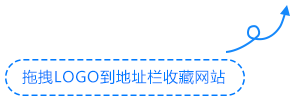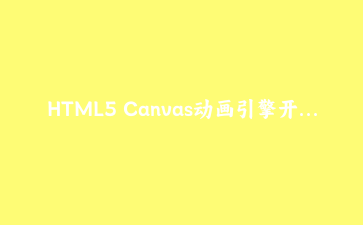
探索Canvas图形编程的核心技术与性能优化策略
1. 引言:Canvas在现代Web图形中的应用
HTML5 Canvas作为浏览器原生图形渲染技术,已成为创建复杂动画、游戏和数据可视化的首选方案。与DOM操作相比,Canvas在性能上具有显著优势,特别适合处理大量图形元素。
2. Canvas绘图基础
在深入粒子系统之前,我们需要掌握Canvas的基本绘图API。
2.1 基础绘制操作
// 获取Canvas上下文
const canvas = document.getElementById('myCanvas');
const ctx = canvas.getContext('2d');
// 设置Canvas尺寸(重要:避免拉伸模糊)
canvas.width = 800;
canvas.height = 600;
// 基础形状绘制
ctx.fillStyle = '#3498db'; // 设置填充颜色
ctx.fillRect(50, 50, 100, 100); // 绘制矩形
ctx.beginPath();
ctx.arc(200, 100, 50, 0, Math.PI * 2); // 绘制圆形
ctx.fill();
// 渐变效果
const gradient = ctx.createLinearGradient(0, 0, 200, 0);
gradient.addColorStop(0, 'red');
gradient.addColorStop(1, 'blue');
ctx.fillStyle = gradient;
ctx.fillRect(300, 50, 200, 100);2.2 动画循环原理
Canvas动画基于持续清除和重绘的循环机制:
function animate() {
// 清除画布
ctx.clearRect(0, 0, canvas.width, canvas.height);
// 更新和绘制图形
updateParticles();
drawParticles();
// 循环调用
requestAnimationFrame(animate);
}
// 启动动画
animate();3. 粒子系统架构设计
粒子系统由大量小型图形元素组成,每个粒子具有独立的属性和行为。
3.1 粒子类定义
class Particle {
constructor(x, y) {
this.x = x;
this.y = y;
this.vx = (Math.random() - 0.5) * 4; // 随机水平速度
this.vy = (Math.random() - 0.5) * 4; // 随机垂直速度
this.radius = Math.random() * 5 + 1; // 随机半径
this.color = `hsl(${Math.random() * 360}, 70%, 60%)`; // 随机颜色
this.alpha = 1; // 透明度
this.decay = 0.015; // 衰减速率
}
update() {
this.x += this.vx;
this.y += this.vy;
this.alpha -= this.decay;
// 边界检测与反弹
if (this.x = canvas.width - this.radius) {
this.vx *= -0.8; // 反弹并损失能量
}
if (this.y = canvas.height - this.radius) {
this.vy *= -0.8;
}
return this.alpha > 0; // 返回粒子是否存活
}
draw(ctx) {
ctx.save();
ctx.globalAlpha = this.alpha;
ctx.fillStyle = this.color;
ctx.beginPath();
ctx.arc(this.x, this.y, this.radius, 0, Math.PI * 2);
ctx.fill();
ctx.restore();
}
}3.2 粒子管理器
class ParticleSystem {
constructor() {
this.particles = [];
this.maxParticles = 1000;
}
addParticle(x, y) {
if (this.particles.length particle.update());
}
draw(ctx) {
this.particles.forEach(particle => particle.draw(ctx));
}
// 批量添加粒子(用于创建特效)
burst(x, y, count) {
for (let i = 0; i < count; i++) {
this.addParticle(x, y);
}
}
}4. 性能优化策略
处理大量粒子时,性能优化至关重要。以下是一些关键优化技术:
4.1 对象池技术
class ParticlePool {
constructor(size) {
this.size = size;
this.pool = [];
this.index = 0;
// 预创建粒子对象
for (let i = 0; i = this.size) return null;
const particle = this.pool[this.index];
particle.x = x;
particle.y = y;
particle.alpha = 1;
// 重置其他属性...
this.index++;
return particle;
}
reset() {
this.index = 0;
}
}4.2 离屏Canvas优化
// 创建离屏Canvas用于复杂图形缓存
const offscreenCanvas = document.createElement('canvas');
offscreenCanvas.width = 50;
offscreenCanvas.height = 50;
const offscreenCtx = offscreenCanvas.getContext('2d');
// 在离屏Canvas上绘制复杂图形
function createComplexParticle() {
// 绘制渐变圆形等复杂图形
const gradient = offscreenCtx.createRadialGradient(25, 25, 0, 25, 25, 25);
gradient.addColorStop(0, 'rgba(255,255,255,0.8)');
gradient.addColorStop(1, 'rgba(255,255,255,0)');
offscreenCtx.fillStyle = gradient;
offscreenCtx.fillRect(0, 0, 50, 50);
return offscreenCanvas;
}
// 主绘制循环中使用drawImage快速渲染
const particleImage = createComplexParticle();
ctx.drawImage(particleImage, x, y);5. 高级特性与交互
为粒子系统添加交互性和高级视觉效果。
5.1 鼠标交互
// 鼠标交互处理
canvas.addEventListener('mousemove', (e) => {
const rect = canvas.getBoundingClientRect();
const mouseX = e.clientX - rect.left;
const mouseY = e.clientY - rect.top;
// 吸引附近的粒子
particleSystem.particles.forEach(particle => {
const dx = mouseX - particle.x;
const dy = mouseY - particle.y;
const distance = Math.sqrt(dx * dx + dy * dy);
if (distance {
const rect = canvas.getBoundingClientRect();
const x = e.clientX - rect.left;
const y = e.clientY - rect.top;
// 在点击位置创建粒子爆发
particleSystem.burst(x, y, 50);
});5.2 粒子物理效果
// 添加重力、阻力和粒子间作用力
class AdvancedParticle extends Particle {
constructor(x, y) {
super(x, y);
this.mass = this.radius * 0.5;
this.gravity = 0.1;
this.friction = 0.98;
}
update() {
// 应用重力
this.vy += this.gravity;
// 应用阻力
this.vx *= this.friction;
this.vy *= this.friction;
// 调用父类更新
return super.update();
}
}
// 粒子间排斥力
function applyRepulsion(particles) {
for (let i = 0; i < particles.length; i++) {
for (let j = i + 1; j < particles.length; j++) {
const p1 = particles[i];
const p2 = particles[j];
const dx = p2.x - p1.x;
const dy = p2.y - p1.y;
const distance = Math.sqrt(dx * dx + dy * dy);
if (distance 0) {
const force = 0.5 / distance;
p1.vx -= dx * force / p1.mass;
p1.vy -= dy * force / p1.mass;
p2.vx += dx * force / p2.mass;
p2.vy += dy * force / p2.mass;
}
}
}
}6. 总结与扩展方向
通过本教程,我们构建了一个功能完整的Canvas粒子系统,实现了:
- 基础粒子类与管理系统
- 高性能的对象池和离屏渲染技术
- 交互式鼠标控制
- 物理效果模拟
进一步扩展方向:
1. WebGL集成:将粒子系统迁移到WebGL以获得更高性能
2. 3D粒子:添加Z轴坐标实现3D空间效果
3. 纹理映射:为粒子添加图片纹理而非纯色填充
4. 粒子轨迹:记录粒子运动轨迹创建拖尾效果
实际应用场景:
这种粒子系统技术可应用于游戏特效、数据可视化、背景动画、用户交互反馈等多种场景。
// 完整可运行的粒子系统演示
document.addEventListener(‘DOMContentLoaded’, function() {
const canvas = document.createElement(‘canvas’);
canvas.width = 800;
canvas.height = 400;
canvas.style.border = ‘1px solid #ccc’;
document.body.appendChild(canvas);
const ctx = canvas.getContext(‘2d’);
// 简化版粒子系统实现
class DemoParticle {
constructor(x, y) {
this.x = x;
this.y = y;
this.vx = (Math.random() – 0.5) * 4;
this.vy = (Math.random() – 0.5) * 4;
this.radius = Math.random() * 3 + 1;
this.color = `hsl(${Math.random() * 360}, 70%, 60%)`;
this.alpha = 1;
this.decay = 0.01;
}
update() {
this.x += this.vx;
this.y += this.vy;
this.alpha -= this.decay;
if (this.x = canvas.width – this.radius) {
this.vx *= -0.9;
}
if (this.y = canvas.height – this.radius) {
this.vy *= -0.9;
}
return this.alpha > 0;
}
draw() {
ctx.save();
ctx.globalAlpha = this.alpha;
ctx.fillStyle = this.color;
ctx.beginPath();
ctx.arc(this.x, this.y, this.radius, 0, Math.PI * 2);
ctx.fill();
ctx.restore();
}
}
const particles = [];
function animate() {
ctx.clearRect(0, 0, canvas.width, canvas.height);
// 添加新粒子
if (particles.length = 0; i–) {
if (!particles[i].update()) {
particles.splice(i, 1);
} else {
particles[i].draw();
}
}
requestAnimationFrame(animate);
}
animate();
});





